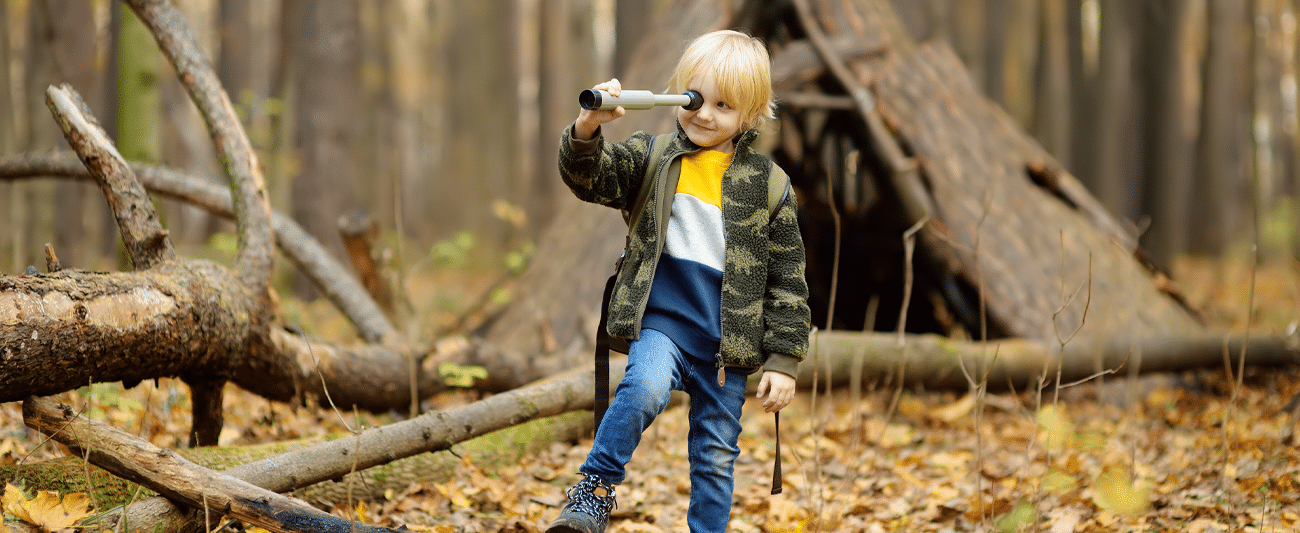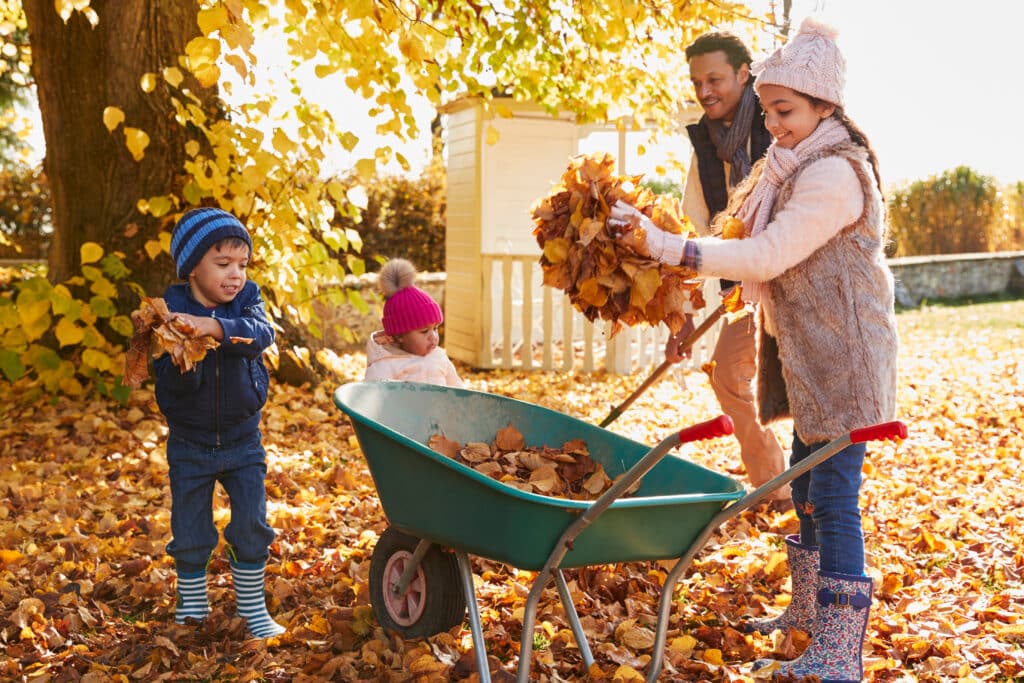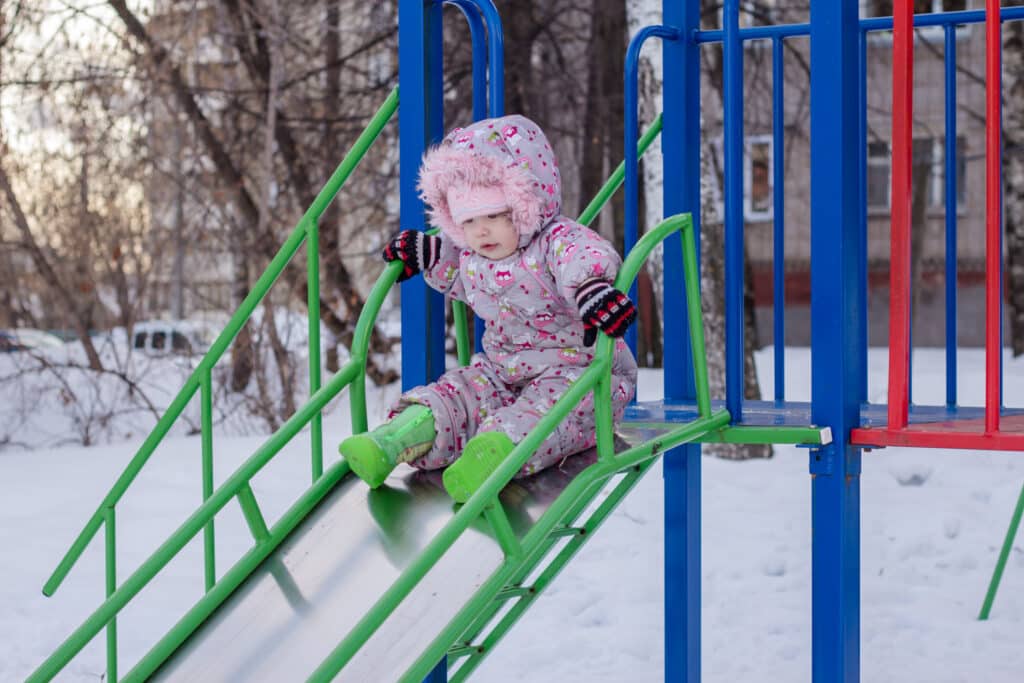
Early Years Foundation Stage learning is conducted through games and play, but in winter, the weather and reduced sunlight hours can impact this. We all spend more time indoors and less outside, but should we? In this article, we’ll explore:
- Why Outdoor Play Is Essential All Year
- What Winter Activities You Can Do
- Tips To Stay Healthy
Outdoor play has an important part to play in early child development, so let’s make sure they can enjoy it year-round…
Why outdoor play is essential all year
1. Playing outside exposes us to sunlight
There’s been a lot of talk around Vitamin D over the last couple of years as it’s a major contributor to our health and well-being – particularly our bones, muscles, and mental health.
Our bodies produce Vitamin D naturally when exposed to sunshine, and while it is in some foods, it is not always easy to find. Playing outside in the sun with skin exposed is one of the best ways to keep vitamin D levels topped up, so you should encourage youngsters to get out when you can.
2. Children learn through play from a young age
Learning through play is one of the cornerstones of EYFS learning – even playgrounds are customised for age groups to make the most out of outdoor time for their development.
Outdoor play with equipment or without can contribute to multiple facets of their learning and development – everything from speech to physical health. So, playing outside all year round can help them be more consistent with their learning.
3. Outdoor play boosts their confidence and independence
Being free to explore and run around the playground is a great way for children to develop independence and confidence in being alone. They become more self-reliant as they have to use their own judgement, self-soothe if an adult is not nearby, and trust themselves.
They get some of this independence in the classroom when they are free to draw and read what they like, but the physicality of outside freedom is far more nerve-wracking and can result in more rewards.
4. It supports language and social skills
What makes outdoor play so appealing to many children, is how unsupervised it is. Teachers and educators often hang around the peripheries, so they can do what they want. This behaviour opens the doors for children to interact with others without guidance. As such, they learn how to have conversations and discover how to cooperate, all from unstructured free playtime.
It also helps them develop social skills and begin to understand certain cues and behaviours they may not experience in the classroom and will help them as they grow. This is especially beneficial for any children who are potentially socially stunted due to the COVID-19 lockdowns.
5. Improved mental and physical well-being
As well as helping us with Vitamin D, outdoor play supports development and growth as it challenges unfamiliar muscles and helps burn off excess sugar. It’s also a huge mental health boost as endorphins are produced throughout exercise and play.
What Winter Activities You Can Do
Getting out and about in winter may seem like a difficult task with the cooler weather and darker nights, but there’s still plenty of opportunity for children to be outside:
- Visit the playground – Schools, councils and a lot of local attractions have playgrounds available for use, so don’t be afraid to let children run free before and after school on the equipment and encourage them to explore on the weekends too.
- Get into the garden – gardening may not seem like a particularly challenging outdoor activity, but it can provide valuable learning experiences and challenge unused muscles, too. Think raking up the leaves, planting bulbs or growing mint.
- Winter scavenger hunts – from robins to leaves, winter flowers to pinecones, squirrels and more, there’s plenty of opportunity to explore in winter and challenge children mentally and physically.


Tips To Stay Healthy
With the cold and dark in winter, there are more opportunities to catch the sniffles and have an accident, so you must remember to remind the children to be careful.
- Clothing: Start by ensuring they are dressed in warm coats with hats, gloves and waterproof shoes. Next, check if they have any reflective gear to help passing cars see them better. This could be on their bags, coats or even shoes.
- Cleanliness: Washing their hands when they come inside is an excellent practice to adopt. This time of the year is rife with germs and bacteria from runny noses and viruses, so a good handwash can help prevent any illness.
- Eating right: Staying warm uses up a lot more energy than you think, so it’s important to make sure children are fed well and enough to help them grow and thrive no matter the weather.
Outdoor play is a major part of childhood development. It helps children become who they were meant to be, so cutting it out for an entire season isn’t going to be a good thing, is it? Encourage the children in your life to get out and about no matter the weather, and you might see their learning advance faster than ever.
About the author

Debbie Woodliffe
Debbie is an experienced writer currently based in the UK as Head of Content at Affinity Agency. She has been a part of the creative and writing industries for the last 11 years and is currently working with companies such as Online Playgrounds to help generate content that is designed to inspire, educate, and inform the reader on relevant, timely topics.
















